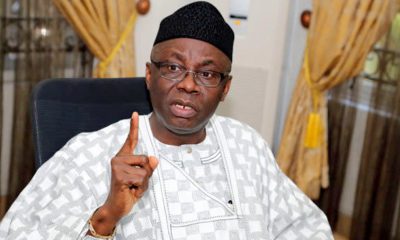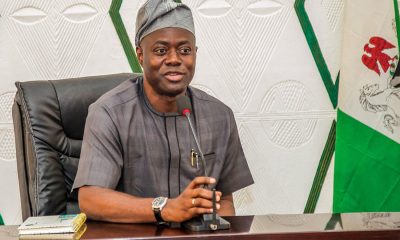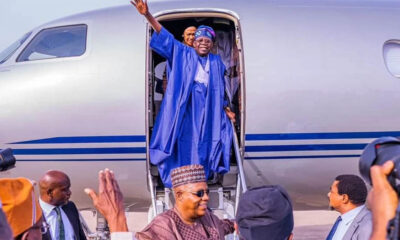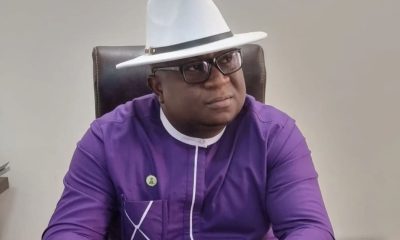Africa
France speaks on alleged plot with Nigeria to destabilise Niger
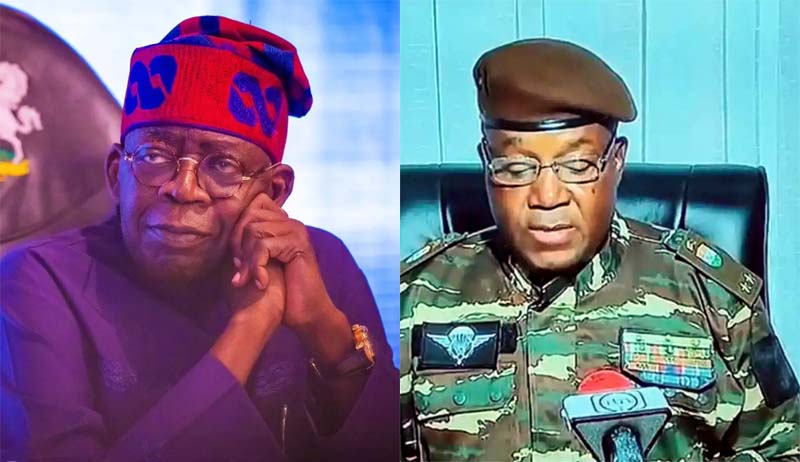
France speaks on alleged plot with Nigeria to destabilise Niger
France has dismissed allegation that Nigeria has offered space in its territory to it in order to destabilise the former French colony, Niger Republic.
Abdourahamane Tchiani, Nigerien military leader, had accused France of plotting to destabilise the country by using neighbouring Benin and Nigeria as a base for attacks.
In a Christmas Day interview, Gen. Tchiani accused France of allying with militant groups in the Lake Chad region to undermine his country’s security, allegedly with Nigeria’s knowledge.
He said: “Nigerian authorities are not unaware of this underhanded move.”
Gen Tchiani said France made a “substantial payment to President Bola Tinubu” to establish a military base in Nigeria.
“They (France) met and negotiated with Boko Haram/Lakurawa,” Tchiani said.
But reacting yesterday, Mr. Bertrand de Seissan, Political Counsellor to the Embassy of France in Nigeria, said the allegation was groundless. “This allegation is groundless. This has never been discussed, nor even suggested by either France or Nigeria,” he said.
The Minister of Foreign Affairs, Yusuf Tuggar, had also described the allegations as insulting to Nigeria and dismissed calls for Nigeria to cut ties with France.
READ ALSO:
- EFL Cup: Tottenham edge Liverpool 1-0 in semi-final first leg
- Ancelotti defends Vinicius ahead of Super Cup
- Catholic priest quits Christianity, joins traditional religion in Anambra
According to him, Nigeria has always maintained a relationship with France. He dismissed reports suggesting that the ties were driven by ulterior motives.
The minister said: “We have always had a relationship with France, it did not start today and there is nothing different about our relationship with France today but it does not mean that other countries or other people have to dictate to Nigeria who it should have a relationship with.”
Tuggarr noted combating terrorism as one of Nigeria’s key interests with France.
“We cannot tackle the issue of insecurity in our region simply by a partnership or by being friends with the Sahelian countries. Even if you do that you still have Libya to contend with,” he said.
“I just finished describing to you the weaponry that is being churned out of Libya; training, fighters, terrorists, the criminal gangs and so on and so forth.
“To solve Libya we need a relationship with France, we need a relationship with the United States of America, we need a relationship with Russia, we need a relationship with all of these major powers.
READ ALSO:
- Sisters set father on fire for alleged rape in Pakistan
- Tinubu splits Nigerian Aviation College into six campuses
- How Iraqi taskmaster maltreated Nigerian lady – NAPTIP DG
“You cannot say that ‘Oh no, Niger, Burkina Faso and Mali have decided after all these years they no longer want to have anything to do with France therefore Nigeria must be compelled’ and meanwhile Nigeria is the senior partner in the relationship, to begin with. It is shortsighted, myopic, and not in Nigeria’s national interest.”
The National Security Adviser (NSA), Nuhu Ribadu, had earlier said the Nigerien leader’s allegations were baseless and false.
Mr. Ribadu said Nigeria would never “sabotage Niger or allow any disaster to befall it.”
Similarly, the Information Minister, Mohammed Idris, said the allegations were unfounded and a diversionary tactic aimed at covering his administration’s failures.
Reports alleging hidden motives from France started to swirl after President Bola Tinubu travelled to the country for a three-day state visit.
Gen Tchiani’s allegations have worsened diplomatic tensions with Nigeria, already strained since the 2023 military coup that ousted ex-president Mohamed Bazoum.
France speaks on alleged plot with Nigeria to destabilise Niger
Africa
Over 120 inmates escape prison in Chad shoot-out

Over 120 inmates escape prison in Chad shoot-out
No fewer than 120 inmates escaped a Chad prison during a shoot-out that left three people dead and wounded a state governor visiting the facility, officials told AFP.
The breakout occurred late Friday when an uprising happened in the high-security penitentiary five kilometres (three miles) from the town of Mongo, in the centre of Chad.
“There are around 100 who escaped, three dead and three wounded,” Hassan Souleymane Adam, secretary general of the Guera province in which Mongo is located, said.
READ ALSO:
- China warns countries against trade dealings with US
- Breaking: Pope Francis dies at 88 – Vatican
- Nigerian banks generated N14tn from loans – Report
- How Nigerian hotelier died during wife’s 60th birthday celebration
A local Mongo official, speaking to AFP on condition of anonymity, disclosed that prisoners broke into a manager’s office to steal guns.
“A shootout with guards ensued at the same time the governor arrived. He was wounded,” he said.
The Mongo official confirmed there were three killed and a total number of 132 prisoners escaped.
He disclosed that the prisoners revolted after complaining about a lack of food.
In a telephone chat with AFP, Chad’s Justice Minister Youssouf Tom stated that he was about to fly to the region and would be able to give “precise information once I am at Mongo in the coming hours.”
Over 120 inmates escape prison in Chad shoot-out
Africa
DR Congo boat fire kills 143 passengers

DR Congo boat fire kills 143 passengers
No fewer than 143 people died, and dozens more went missing after a boat carrying fuel caught fire and capsized in the Democratic Republic of Congo, officials said Friday.
Hundreds of passengers were jammed onto a wooden boat on the Congo River in northwest DRC on Tuesday when the wildfire broke out, according to Josephine-Pacifique Lokumu, head of a delegation of national MPs from the region.
The calamity struck near Mbandaka, the capital of Equateur Province, at the junction of the Ruki and the massive Congo River, the world’s deepest.
“A first group of 131 bodies was found on Wednesday, with a further 12 fished out on Thursday and Friday. Several of them are charred,” Lokumu told AFP.
According to Joseph Lokondo, a local civil society activist who helped bury the remains, the “provisional death toll is 145: some burnt, others drowned”.
According to Lokumu, the blaze was triggered by a fuel explosion sparked by an onboard cooking fire.
“A woman lit the embers for cooking. The fuel, which was not far away, exploded, killing many children and women,” she said.
READ ALSO:
- Speed Darlington alleges use of ‘Juju’ by Portable during celebrity boxing bout
- Speed Darlington alleges use of ‘Juju’ by Portable during celebrity boxing bout
- Davido eyes Nollywood, to invest in film projects
Videos circulating on social media showed flames leaping from a big boat stranded far from shore, smoke rising from the wreckage, and passengers on smaller vessels watching on.
The precise number of passengers on board the tragic vessel was unknown, but Lokumu estimated it to be in the “hundreds”.
Some people were rescued and admitted to the hospital, Lokondo added.
However, he said that “several families were still without news of their loved ones” on Friday.
The Democratic Republic of the Congo (DRC), a huge Central African nation spanning 2.3 million square kilometres (900,000 square miles), suffers from a shortage of passable roads, and planes serve just a few cities and villages.
As a result, people frequently travel on lakes, the Congo River (Africa’s second longest river after the Nile), and its winding tributaries, where shipwrecks are common and mortality tolls are high.
The persistent lack of passenger lists frequently hinders search activities.
In October 2023, at least 47 people perished when a boat travelling the Congo sank in Equateur.
According to local authorities, a boat sank on Lake Kivu in eastern DR Congo in October of last year, killing more than 20 persons.
Another shipwreck on Lake Kivu killed approximately 100 lives in 2019.
DR Congo boat fire kills 143 passengers
Africa
Niger Republic adopts Hausa as national language

Niger Republic adopts Hausa as national language
In a significant cultural shift, Niger’s military-led government has officially designated Hausa as the country’s national language, marking a break from the nation’s colonial legacy where French held prominence.
The announcement was made in a new national charter released on March 31, as published in a special edition of the government’s official journal.
According to the document, “The national language is Hausa,” and “the working languages are English and French.”
Hausa is already widely spoken across Niger, especially in the regions of Zinder, Maradi, and Tahoua. With an estimated population of 26 million, the majority of Nigeriens speak Hausa, while only about 13 percent—roughly three million people—are fluent in French.
Alongside Hausa, the charter also officially recognizes nine other indigenous languages, including Zarma-Songhay, Fula, Kanuri, Gourmanche, and Arabic, as “the spoken languages of Niger.”
READ ALSO:
- EU approves 1st retaliatory tariffs on U.S. imports
- Israeli strikes kill 20 in fresh attack on Gaza
- Nigeria spends over $21,000 to train one doctor — Health Minister
This language policy change follows a national consultative meeting held in February, during which the junta gained increased support. The assembly also approved a five-year extension for junta leader General Abdourahamane Tiani to remain in power.
Since the coup that ousted civilian president Mohamed Bazoum in July 2023, the military government has taken steps to sever ties with France. These include expelling French troops, cutting diplomatic relations, and renaming roads and public buildings previously named in French.
Niger’s move mirrors similar actions taken by fellow former French colonies Mali and Burkina Faso—both under military rule—as they too distance themselves from France and its institutions.
All three countries have also withdrawn from the Organisation Internationale de la Francophonie, a body that promotes the French language and cultural ties among member nations.
Niger Republic adopts Hausa as national language
-

 metro15 hours ago
metro15 hours agoOmokri : How Tinubu’s political mastery started with Abiola, says El-Rufai, Obi’s forces can’t stop him
-

 metro3 days ago
metro3 days agoI’m not in supremacy battle with Ooni, says new Alaafin
-

 Education9 hours ago
Education9 hours agoJAMB officials seize candidates’ hijab at Caleb varsity, Muslim students kick
-

 Entertainment2 days ago
Entertainment2 days agoP-Square: Jude Okoye freed after two months detention
-

 International9 hours ago
International9 hours agoUS releases 41 countries granted 90-day entry without visas (full list)
-
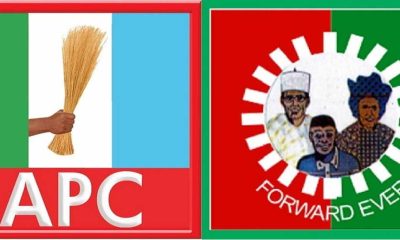
 Politics2 days ago
Politics2 days agoLabour Party collapses into APC in Plateau
-
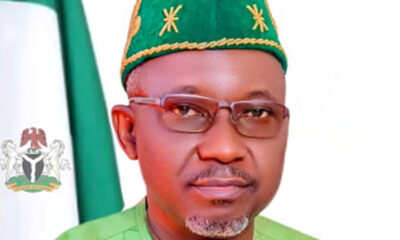
 Business3 days ago
Business3 days agoNigeria’s gas production increases by 15.6% to 227,931.65 mscf
-
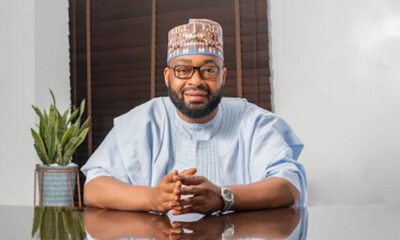
 metro2 days ago
metro2 days agoNiger Gov Bago makes U-turn on dreadlocks ban after backlash



